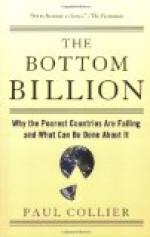William Shakespeare.
SELF-DEPENDENCE
One star does not ask another to adore it or amuse it; Mt. Shasta, though it towers for thousands of feet above its neighbors, does not repine that it is alone or that the adjacent peaks see much that it misses under the clouds. Nature does not trouble itself about what the rest of nature is doing. But man constantly worries about other men—what they think of him, do to him, fail to emulate in him, have or secure in comparison with him. He lacks nature’s inward quietude. Calmness and peace come by being self-contained.
Weary of myself, and sick of asking
What I am, and what I ought to be,
At this vessel’s prow I stand, which
bears me
Forwards, forwards, o’er the starlit
sea.
And a look of passionate desire
O’er the sea and to the stars I
send:
“Ye who from my childhood up have
calmed me,
Calm me, ah, compose me to the end!
“Ah, once more,” I cried,
“ye stars, ye waters,
On my heart your mighty charm renew;
Still, still let me, as I gaze upon you,
Feel my soul becoming vast like you!”
From the intense, clear, star-sown vault
of heaven,
Over the lit sea’s unquiet way,
In the rustling night-air came the answer:
“Wouldst thou BE as these are?
LIVE as they.
“Unaffrighted by the silence round
them,
Undistracted by the sights they see,
These demand not that the things without
them
Yield them love, amusement, sympathy.
“And with joy the stars perform
their shining,
And the sea its long, moon-silver’d
roll;
For self-poised they live, nor pine with
noting
All the fever of some differing soul.
“Bounded by themselves, and unregardful
In what state God’s other works
may be,
In their own tasks all their powers pouring,
These attain the mighty life you see.”
O air-born voice! long since, severely
clear,
A cry like thine in mine own heart I hear:
“Resolve to be thyself; and know
that he
Who finds himself, loses his misery!”
Matthew Arnold.
A LITTLE PRAYER
We should strive to bring what happiness we can to others. More still, we should strive to bring them no unhappiness. When we come to die, it is, as George Eliot once said, not our kindness or our patience or our generosity that we shall regret, but our intolerance and our harshness.
That I may not in blindness grope,
But that I may with vision
clear
Know when to speak a word of hope
Or add a little wholesome
cheer.
That tempered winds may softly blow
Where little children, thinly
clad,
Sit dreaming, when the flame is low,
Of comforts they have never
had.
That through the year which lies ahead
No heart shall ache, no cheek
be wet,
For any word that I have said
Or profit I have tried to
get.




